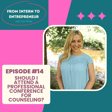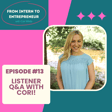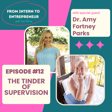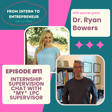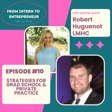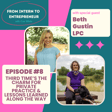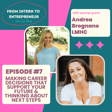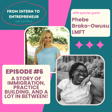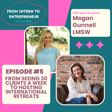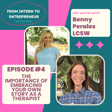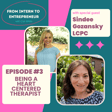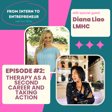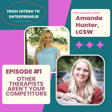
Episode 9 - A Journey To And Through A Doctoral Program with Dr. Ayli
Click here to join the From Intern To Entrepreneur Facebook community!
From Intern to Entrepreneur is the podcast for counseling graduate students (and other grad students in mental health fields) to start planning their journey to private practice while they're still in graduate school! Host, Cori White, started planning her journey while she was still in her graduate program and it paid off BIG to start planning EARLY.
In this episode of From Intern to Entrepreneur, Cori interviews Dr. Ayli Carrero Pinedo! This woman has a POWERFUL story, and so many *gems* about how to approach a doctoral program, from picking one to making it through! It's a must listen for anyone interested in continuing their education post master's!
More about Dr. Ayli:
Dr. Ayli Carrero Pinedo is a formerly undocumented Peruvian immigrant, first-generation student, APA Minority Fellowship Program (MFP) fellow, advocate, and an award-winning counseling psychologist. Her work is guided by liberation psychology and public psychology, where she specifically addresses the intersection of trauma with culture and race while acknowledging the compounding impact of structures of oppression. Her advocacy work on behalf of underserved, immigrants, and rural people caught national attention and she was selected as the August 2019 Fellow of the Month by the Substance Abuse and Mental Health Services Administration (SAMHSA). When she was the student chair of the Trauma Psychology Division (Division 56) of the American Psychological Association, she developed the Cultivating Healing, Advocacy, Nonviolence, Growth, and Equity (CHANGE) Grant. This funds student’s and early career professional’s trauma-based projects. In 2021, she also founded #PsychGradWishList, an online mutual-aid movement for incoming psychology interns and graduating trainees of color. Her dedication to the present and future of the profession was recognized in December 2022, when she was awarded an American Psychological Association Presidential Citation for her commitment to eradicate racial trauma and her leadership in supporting early career psychologists and graduate students.
Connect with her:
@draylicp (instagram)
Email: connect@alliyanapsych.com

